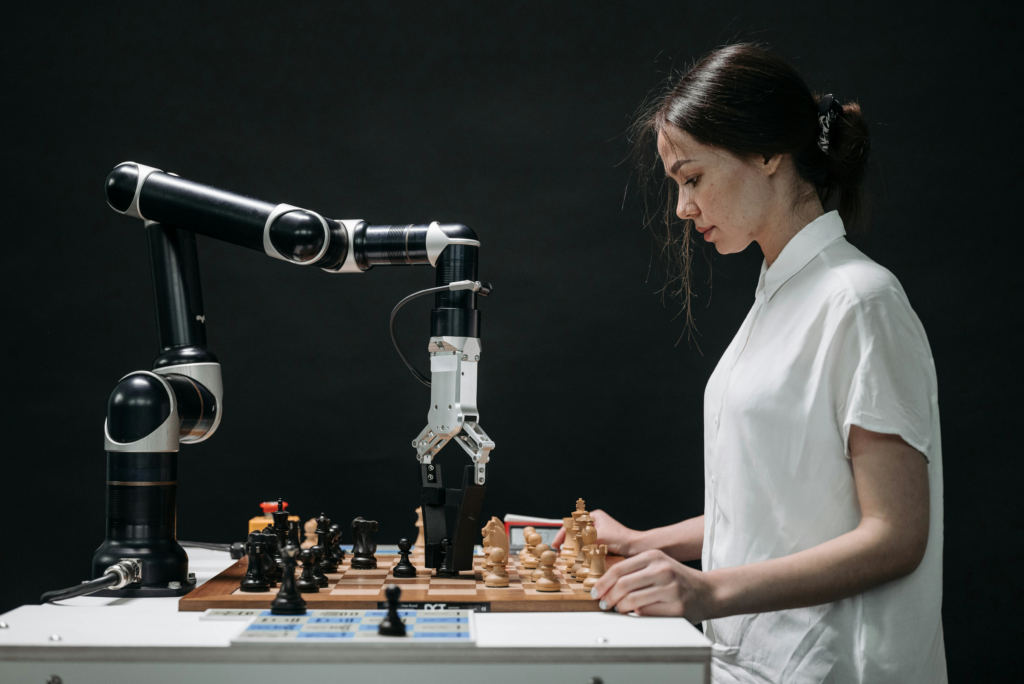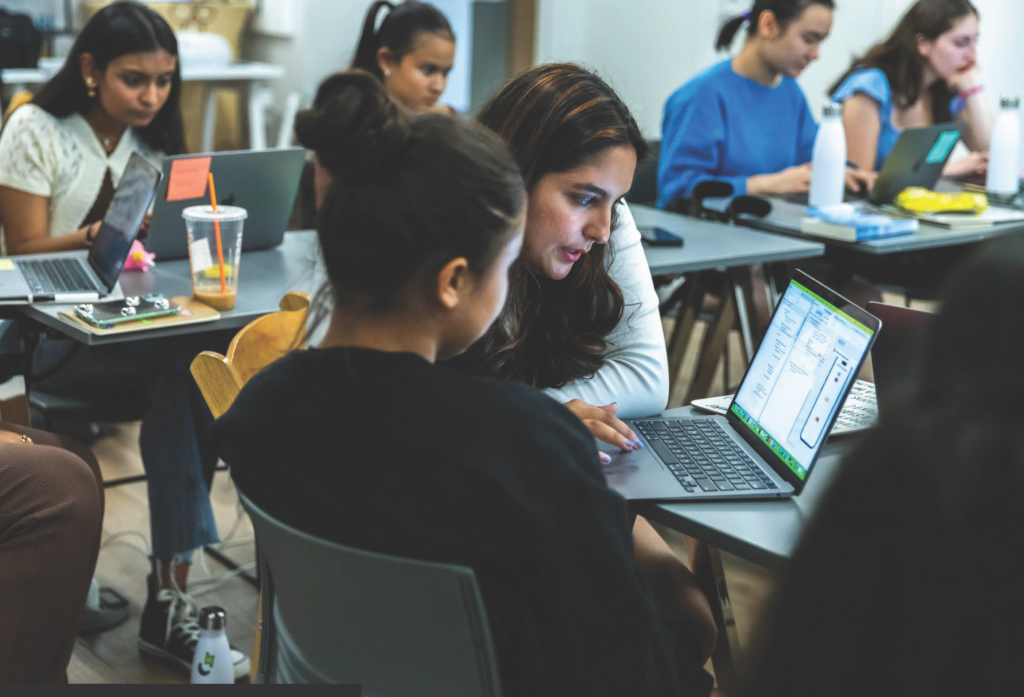5 Women Shaping AI You Need To Know

Artificial intelligence (AI), once the stuff of science fiction movies, has quickly become commonplace. Apple’s Siri, Amazon’s Alexa, and AI-generated product review summaries are just a few of the tools we interact with regularly.
As AI technology advances and becomes more integrated into our lives, there is a need for diverse perspectives to guide its development. Women, already a minority in tech, are also severely underrepresented in AI. Randstad’s 2024 AI & Equity report revealed that only 29% of AI-skilled workers are women.
With National AI Appreciation Day approaching, here are five women whose work is shaping AI to be more accessible, inclusive, and ethical.
Dr. Joy Buolamwini
Dr. Joy Buolamwini is considered an AI ethics leader and accountability advocate. Her research at MIT found racial and gender biases in facial recognition software from big companies like Microsoft and Amazon. These findings led her to found the Algorithmic Justice League, an organization dedicated to creating more equitable and accountable AI technology.
The AJL’s mission is to educate society about the impact of AI and prevent harm through advocacy, resource sharing, and the empowerment of communities and decision makers. A PBS documentary, Coded Bias, featured her work on algorithmic bias. She also wrote Unmasking AIto continue raising awareness on how ethics are essential in AI development.

Dr. Fei-Fei Li
Called the “godmother of AI,” Dr. Fei-Fei Li established ImageNet, the dataset that accelerated progress in computer vision, a computer’s ability to see and interpret images and videos. A Stanford professor and AI researcher, she also co-founded the Stanford Institute for Human-Centered AI (HAI). HAI is dedicated to developing AI technology that is ethical, transparent, and provides benefits to society.
Fei-Fei also co-founded the national nonprofit AI4ALL to increase inclusion and diversity in AI education. The organization’s vision is to ensure diverse perspectives guide AI development so that all people benefit. The idea that AI should be human-centered guides her work and advocacy. It should positively impact individuals, communities, and societies.
Cynthia Breazeal
Cynthia Breazeal, a professor and Dean for Digital Learning at MIT Media Lab, has pioneered AI literacy in her work advancing AI education. She is the founding director of the MIT initiative on Responsible AI for Social Empowerment and Education (MIT RAISE). The initiative promotes research and outreach to promote access and inclusivity in AI technology education for all, focusing on K-12 education.
Additionally, Cynthia established the Day of AI program, bringing AI literacy education to over a million students in 170 countries. The program provides free AI tools, curriculum, assessments, and teacher professional development materials.

Madeline Gupta
A member of the Sault Ste. Marie Tribe of Chippewa Indians, Madeline Gupta’s AI work is deeply connected to her culture. Her focus is Indigenous language revitalization through technological storytelling. She sees AI as a collaborative tool that provides access, data sovereignty, and resources to communities working to preserve their languages.
Madeline believes representation and ethical thinking are necessary in AI technology.
“It’s so important to integrate diverse values into what we’re creating,” she said. “It allows little kids to look at these products and say, ‘Somebody like me made this. I can make these things too for my community.’”
She also advocates for investment in organizations like Rewriting the Code, which provided her with access to resources and a community to support her development.
Beverlyn Tsai
Beverlyn Tsai’s recent research analyzed how people reacted emotionally to AI-generated political content versus human-generated content on social media. She found that AI images were more often associated with positive emotions like joy and optimism because they were more satirical. She wants her work to protect election integrity and raise awareness about misinformation and AI’s persuasiveness.
Beverlyn believes women’s emotional awareness is a vital component in AI technology development.
“As a woman, I feel like I can tie that bridge together,” she said, when speaking about how she would like AI to develop ethically in connection with human emotions and mental health.
Beverlyn wants to explore bias in AI training data because who trains it and where the data comes from can skew what it generates. She also promotes inclusive spaces like hackathons and Rewriting the Code to encourage more women into tech.






